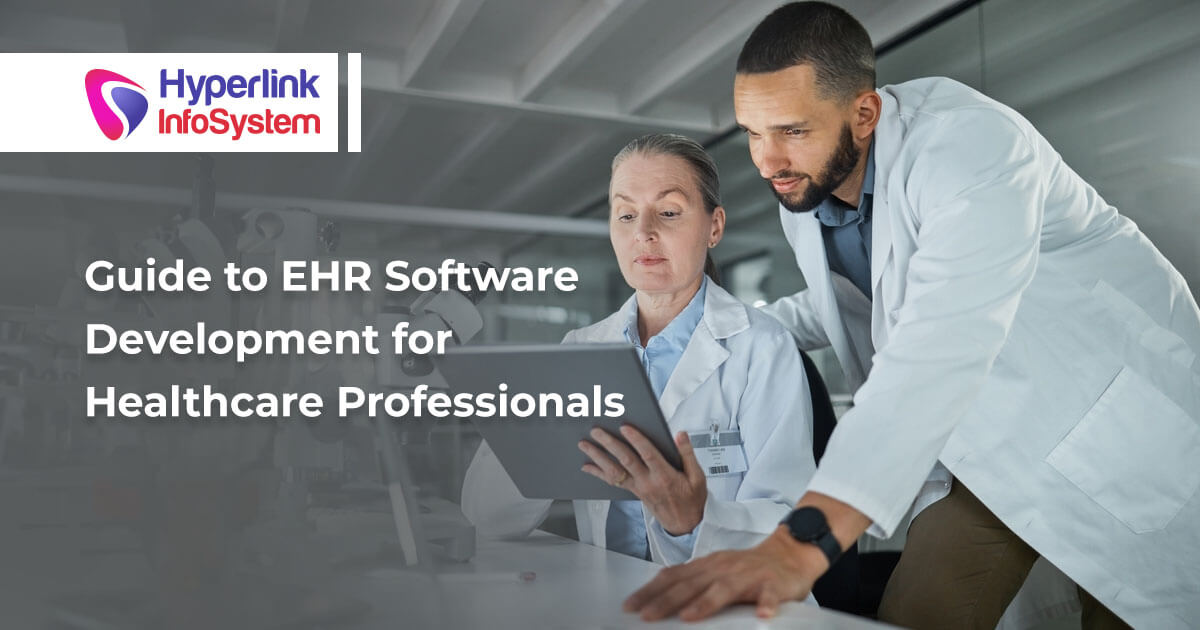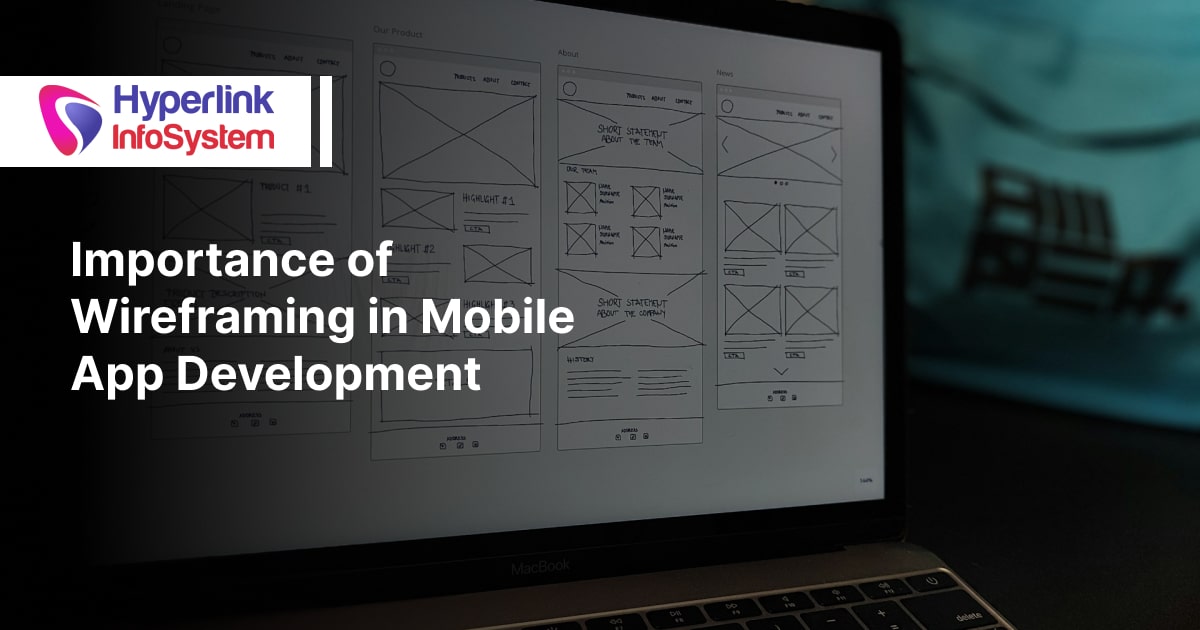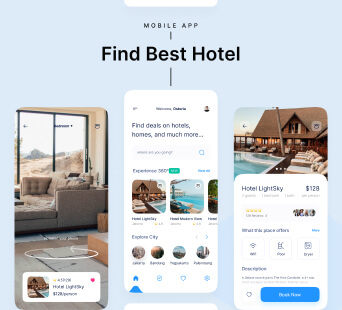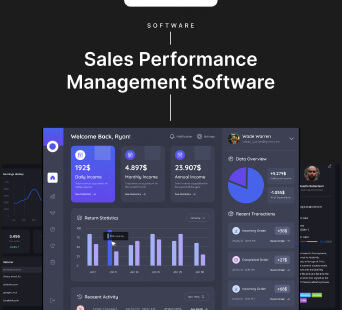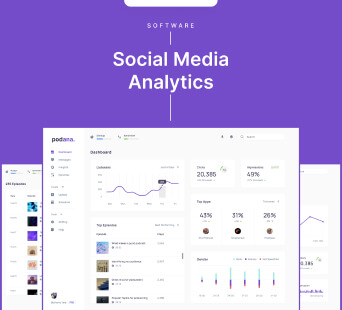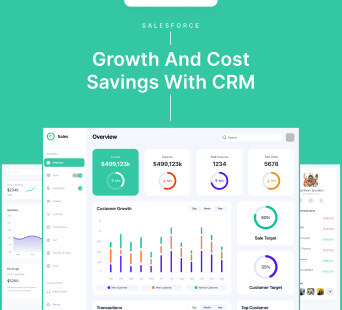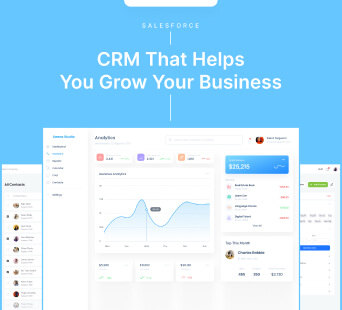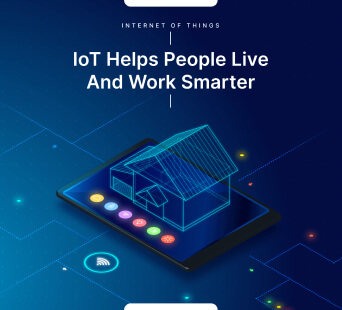EHR is more than just digital records; it's a wide approach to revolutionizing health care. EHR seamlessly replaces paper-based documentation, offering a streamlined and efficient approach to managing health information.
This digital evolution isn't just for healthcare professionals; it's a game-changer for patients too.
With features like real-time updates, secure data storage, and user-friendly interfaces, EHR simplifies complex healthcare processes.
No longer confined to file cabinets, patient data becomes dynamic, easily accessible, and secure. In this article, you will learn about the features and benefits of EHR software.
What Is EHR?
Electronic health care records (EHR) are having the records of every patient digitally. The records can be anything from treatment reports to allergy information. EHR software development is developing the EHR software to meet the diverse needs of the patients.
The key benefit of the EHR is the medical staff can easily access the reports all in one place. The medical staff can share the reports with other medical experts to get medical advice.
All healthcare providers can be one team and work together to improve the health of the patients. This EHR is easily accessible on the computer. Choose the best
custom healthcare software development company to develop one for you.
The EHR systems have made the medical process more easy and efficient.
Features fo EHR Software
1) Patient Demographics
This feature has the basic pieces of information about patients like name, age, and contact lists.
If a patient vist a new doctor, he needs to give these basic pieces of information. But with EHR the documents are easy to access for the new doctor.
2) Medical History
EHR keeps track of your past illness, surgeries, and medication. It is like having your complete medical history in your hand.
For example, if a patient had surgery before a few years ago, the EHR will note that. It helps the doctor to know the medical background of the patient without asking the patient. It no longer is a trouble if the patient forgets any detail of theri medical journey.
3) Medication List
This system maintains the perfect list of past and present medications. EHR also notes the allergies of the patients.
This feature helps the doctor to prescribe medications according to the patient's medical history. The doctor will get to know if the suggested medication will trigger the allergies or not.
4) Diagnostic Test Result
EHR also stores the lab results. Those lab results can be anything like x-rays or blood results. A doctor can easily understand the health condition of a patient and plan the medications accordingly.
5) Treatment Plans
This feature outlines the ongoing treatments like therapies and medication of the patient.
If a patient undergoes physical therapy the therapist updates it in the EHR so that another doctor who treats the patient will get to know the medications and subscribe to medicines according to that so no medicines will react with others.
6) Appointment Scheduling
EHR schedules the appointment with the doctor and sends reminders to the patients. This feature minimizes the chance of missing an appointment with the patients.
7) Interoperability
With EHR, health providers can share the patient's information. If a patient vist to any specialist, the specialist can vist the EHR of the patient.
So the specialist can understand the overall health history of the patient. This will ensure the comprehensive care for the patients.
8) Secure Messaging
EHR provides robust security between the conversation of the patient and the health care provider. A patient can contact the doctor and discuss the issues. The patient can also ask about the prescription refills and many other things.
Top Benefits of EHR Software Development
1) Improves Quality of Care
The EHR helps healthcare professionals to make better-informed decisions about patient care. With EHR medical professionals can access the data immediately and act according to the information.
EH alerts healthcare providers about possible safety issues. So they can avoid potentially serious problems.
Even if the patients are unconscious the health care provider can offer the right treatment with EHR.
2) Increase Efficiency
EHR can boost the organizational efficiency of healthcare professionals. EHR helps to prevent the usual mistakes by scheduling the process perfectly.
It offers real-time updates, rescheduling features, and reminders about the schedule. So the health care professionals can manage theri workload effectively.
3) Boost Patient Engagement
Create a collaborative environment between patients and healthcare professionals with EHR. it also assures the transparency of the medical process. Patients can engage with doctors and get complete control over theri health.
4) Reduces Medication Errors
EHR can reduce many medication errors. It helps doctors prescribe the wrong medicine that can harm the patients.
This not only improves patient safety but also equips doctors with complete information about patients. It also enables automatic medication prescribing.
5) Enhances Data Security
This is way better than the paper-based system. It promises better security as it stores the data in a secure place and has encrypted formats. Only authorized persons will be able to access this data. It minimizes the risk of data breaches and data loss.
6) Save Money
EHR is quite expensive to maintain but at the same time, it can save you money in many ways. As the EHR
-
Reduce the need for paper-based procedure
-
Administrative tasks are made easier
-
Minimize the errors in the medical field
Tips to Choose the Right EHR Software for Healthcare Professionals
Consider these tips before selecting your software development company.
-
Consider Your Organization’s Needs
-
Identify Key Features
-
Consider Integrations
-
Research about the Available EHR Vendors
-
Request for Trials
-
Review for Regulatory Compliance
-
Evaluate Scalability and Flexibility
-
Ask for Feedback
-
Review Costs and ROI
Conclusion
Beyond eliminating the hurdles of paperwork, EHR systems improve precision and efficiency in managing patient information. Healthcare professionals can access real-time updates, ensuring timely and informed decision-making.
Patients become active participants in their care, enjoying the comfort of accessing their records anytime, anywhere.
